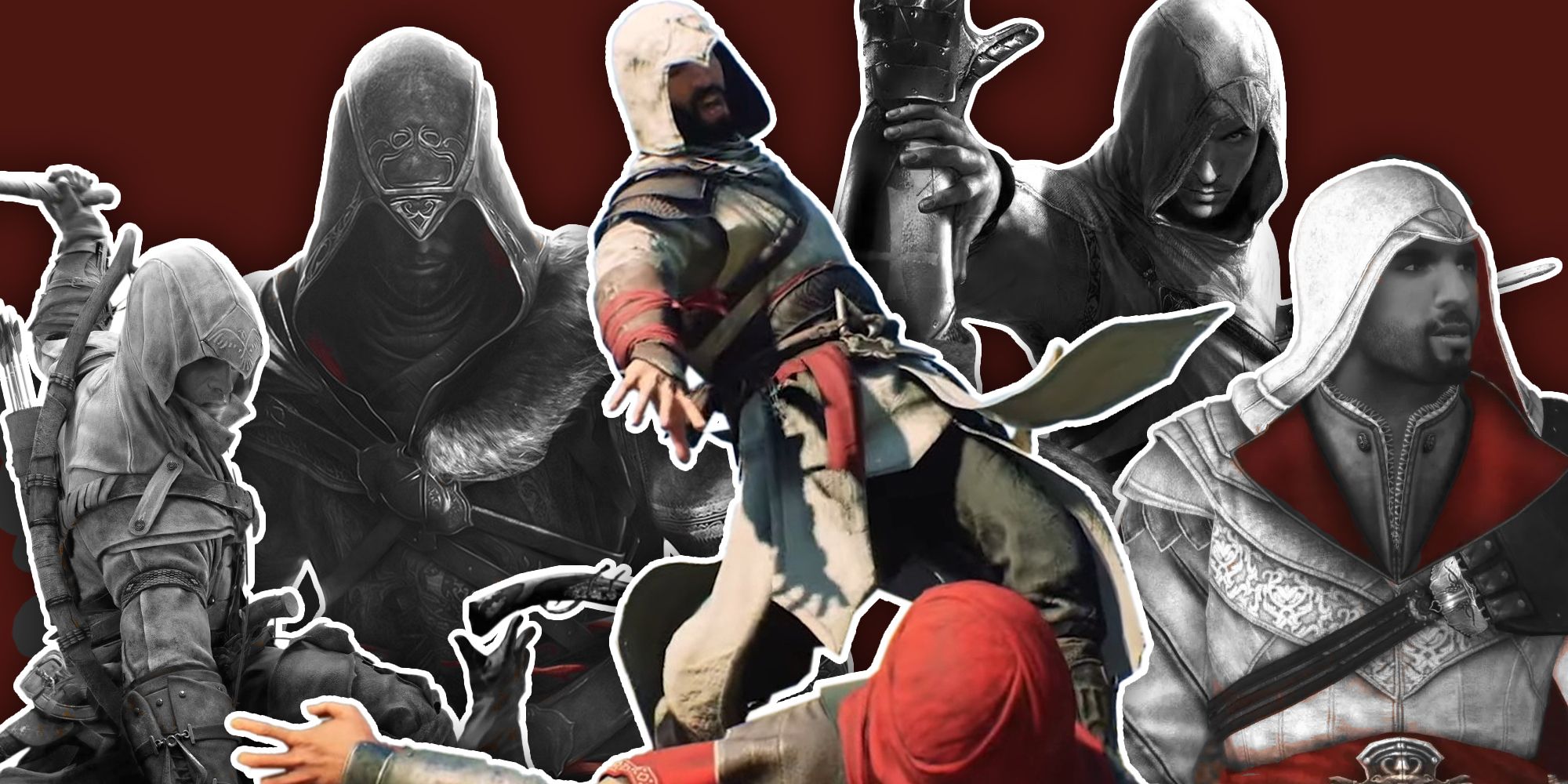One of the main takeaways from Assassin’s Creed Mirage’s gameplay debut during this week’s PlayStation Showcase was how much it looked like the original from 2007. We’re praising this game as a bold return to form, instead of a smaller title in a sea of leviathans that harkens back to the past out of desperation. All before the series moves on with its vision of bloated, live-service worlds wrought with content that doesn’t mean anything in Assassin’s Creed Infinity. Mirage is a side project, and is playing us like a damn fiddle.
What confuses me is that the original Assassin’s Creed wasn’t very good. Sure, it was contained in its level design and visually stunning for the time, but even reviews back then were brutal regarding its repetitive mission structure and stealth systems that felt restrictive rather than liberating. Mirage seems to lean into all of that though, so much so that we even see protagonist Basim sitting down on a bench to hide from enemies before blending amidst the crowds and murdering from the shadows. All classic assassin stuff, which the narration is keen to remind us of in case we’re silly enough not to notice. This wants to be a return to form, but it reunites us with flawed, if classic, tropes the series moved away from for good reason.
Assassin’s Creed 2 is where the formula finally came into its own, but also when it stopped evolving for the better part of a decade. Unlike Altair, Ezio wasn’t shepherded awkwardly to new cities and asked to repeat the same missions over and over before finally reaching his target, there was more freedom and a greater utilisation of tools you’d expect from expert assassins. In the first game, combat either involved your hidden blade or waiting to counter attacks, anything else would spell doom. Failing to complete quests in a specific way would also halt your progress, so it made sense to play things how the game expected in order to avoid frustration. If Mirage repeats any of that, it won’t be the love letter many are expecting.
Ubisoft has said its main purpose is to celebrate the series’ 15th anniversary. The campaign is said to be only 20 hours in length, and much of the game will take place in a sprawling city and the surrounding countryside instead of asking us to explore an entire nation like Origins, Odyssey, or Valhalla. It is restricted by design, which will serve to make what follows all the more jarring if this goes down a treat.
Projects Red and Hexe, both of which are a part of the Assassin’s Creed Infinity platform, have been pitched as massive adventures to rival the trio of behemoths that came before, likely built to accommodate several years of expansions and updates that ensure player retention rather than prioritise artistic integrity. This alone makes Mirage appealing, albeit a depressingly small appetiser r that has clearly been developed to deliberately cater to our nostalgia before moving onto the main course.
It’s disheartening in that sense, even more so if the finished product ends up feeling innovative in ways its contemporaries often aren’t. It will suck if this love letter to a formula that doesn’t exist anymore sets our hearts aflutter more than the bigger games that await, forcing Ubisoft into an awkward position where it either decides to balance small efforts like this with the big players, or ends up creating a gross homunculus where nobody is happy. Keeping our love for the past hostage was always going to result in this dilemma.
The thing is - if Ubisoft understands that we’re growing tired of the series’ new direction and prefer the return of old-fashioned stealth and smaller game worlds, why is it both releasing a game like Mirage while also speeding ahead with laughably bloated projects like Red? That alone is a sign it isn’t listening, or at least views Mirage as a consolation prize we can accept before relinquishing ourselves to the real thing. Infinity is pitched as a platform to house what Assassin’s Creed is set to become, both through tighter outings and live-service games defined by constantly changing open worlds.
It is all about content, although the creative vision feels muddled and inconsistent in ways that don’t understand what Assassin’s Creed wants to be, nor what it ever was in the first place. I’m all for cheering on a series that isn’t afraid to keep being unpredictable, but Ubisoft is flirting with the past here in more ways than one. It’s becoming harder and harder to overlook its cynical approach to this medium and how we’re going to keep repeating history and marching towards an uncertain future so long as it keeps making money. Mirage could be great, but right now it has no bearing on the series’ future but pilfers from its legacy.


